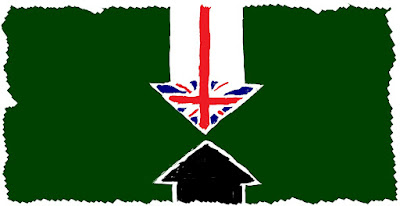When it comes to foreign policy, British politicians are overly fond of characterising themselves as Winston Churchill fighting against an evil aggressor abroad.
The UK has been trying to negotiate its own tripartite security pact with Ukraine and Poland, in a repeat of actions that contributed to the outbreak of World Wars One and Two. As such, it seems that the idolisation of past wartime leadership is so ingrained in British politicians that they don't mind repeating those men's mistakes.
1939, again and again
Britain's Defense Secretary Ben Wallace claimed there was a "whiff of Munich" when he visited Moscow, while continuing to warn about an imminent Russian invasion of Ukraine. What is it with the constant World War Two comparisons, which were going on even during the Iraq War?
What is happening with these politicians is a kind of cosplay. Like lesser Roman emperors, they have no identity of their own (except maybe Boris Johnson) and have to compare themselves with prior historical characters or dress up as them, as UK Foreign Secretary Liz Truss did in Moscow. And it is a portrayal of characters - as in, fictional ones. Living in comfort, it is possible that some subconscious part of us forgets that history actually happened, with our minds instead processing it only as song and story. Most of us who think of historical figures instead think of actors portraying them on a screen. Mixed with pervasive monitoring, social media, and the transformation of politics into live entertainment, the effect may be to blur the boundaries of reality and fantasy even among those involved in important policy decisions, resulting in a sense of stardom and glamour among political figures who should instead focus on reality.
Russia only needs to be compared with Russia
It is a well-known fallacy to point out that the other side, e.g. Vladimir Putin's Russia, is acting in some way like Adolf Hitler or Nazi Germany, but this fallacy has nevertheless become a talking point of British politicians. The refutation is clear: so what? Hitler enjoyed cream cakes as well, but that isn't a refutation of them.
Both sides annexed land and redrew the borders of Europe in World War Two. In fact, the Kremlin redrew more borders prior to, during and after World War Two than the Nazis did. The anti-Hitler Allies even demanded the redrawing of borders and division of Germany as a condition for post-war peace. The Nazi comparison is ridiculous, when Russia's actions are better compared with other Russian actions that the Allies approved of. Even the creation of the Eastern Bloc was agreed by the Allies themselves.
Repeating past mistakes
The assumption that the UK was a blameless and righteous power in earlier conflicts, and that the same approach should be cosplayed to maintain European security now, is also wrong.
The UK made strategically and morally dubious commitments in both World Wars and helped to start them. Britain's alliance with Belgium committed it to fight there in World War One, and was stupid. After the horrors of that conflict, the recognition that it was wrong to sacrifice so many men and deplete our own strength to protect a small country that would hardly appreciate it set in. That was the logic of Neville Chamberlain.
However maligned Chamberlain is, he had a point, from a moral perspective. As with Belgium, arguments about Britain defending Poland were irrational. Britain could not in fact help Poland, for purely logistical reasons, so it was making a pledge it could not fulfil. Of course, that did not make Britain's role in starting the war irrational; the pledge was simply fake. The strategic basis for waging a war on Germany and forgetting about Poland's fate was rational. Nazi Germany was an unacceptable competitor. Then, they conquered resources in Czechoslovakia and Poland and became an even more unacceptable competitor. The declaration of war was a choice in Britain's interests, not Poland's.
The Second World War is considered to be a just war. A consensus on that is still essential to the global security maintained by the victors of the war, the permanent members of the United Nations Security Council. However, it was only truly known to be a just war at some point during it, when evidence of Axis atrocities was clearer. In the early days of the war, the conflict seemed like no more than a repeat of World War One.
Unnecessary grand alliances
The First World War was not a just war, and was not necessary for Britain. It was solely the result of faulty moral proclamations about protecting Belgium from the propagandised "Hun". It was not worth the loss of life to Britain, to prevent the Germans from humiliating France as they did in the Franco-Prussian War and were attempting to repeat.
The current pre-"World War Three" tensions in Eastern Europe are a lot more like those of World War One than World War Two. There is no clear indication that the other side is evil, carrying out any sort of mass atrocity, or planning anything truly offensive to humanity, so there is no moral case to make an alliance.
Britain has no strategic need for Ukraine or Poland. There are no cultural, linguistic or historical ties to either country. These is no reason to share their burdens, anymore than there is a need for us to share Morocco's burdens and side with it against Western Sahara. They are completely irrelevant, and yet our necks are potentially being risked for them.
It seems as if, in their eagerness to become heroes by re-enacting World War Two, British politicians have forgotten not just the horror of that war but the horror of World War One. Their cosplay is being done with no apparent goal in mind other than their own stardom.

